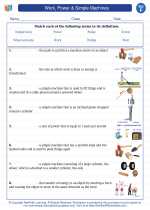Biomedical Engineering
Introduction to Biomedical Engineering
Biomedical engineering is a multidisciplinary field that integrates engineering principles with medical and biological sciences. It encompasses the development of medical devices, diagnostic tools, therapeutic strategies, and healthcare technologies.
Biomedical Engineering Applications
Biomedical engineers work on a wide range of applications, including prosthetics, medical imaging devices, artificial organs, regenerative tissue growth, pharmaceuticals, and health management systems.
Biomechanics and Biomaterials
Biomedical engineers study the mechanics of the human body and develop biomaterials that are compatible with biological systems. They design and create implants, artificial organs, and medical devices using materials that interact safely with living tissues.
Medical Imaging
Biomedical engineers develop and improve medical imaging technologies such as MRI, CT scans, ultrasound, and X-ray systems to aid in diagnosis and treatment.
Biomedical Instrumentation
This area involves the design and development of medical instruments and devices such as monitors, sensors, and medical equipment used in healthcare settings.
Tissue Engineering and Regenerative Medicine
Biomedical engineers work on creating artificial tissues and organs, as well as developing strategies for tissue regeneration and repairing damaged biological systems.
Career Opportunities in Biomedical Engineering
Graduates in biomedical engineering can pursue careers in medical device companies, pharmaceutical companies, hospitals, research institutions, and regulatory agencies.
Challenges and Ethical Considerations
Biomedical engineers face challenges related to patient safety, ethical considerations, and regulatory compliance when developing new medical technologies and devices.
Research and Innovation
Ongoing research and innovation in biomedical engineering contribute to advancements in healthcare, personalized medicine, and improved patient outcomes.
Conclusion
Biomedical engineering plays a crucial role in improving healthcare by applying engineering principles to medical and biological sciences, ultimately benefiting patients and the healthcare industry.
.◂Science Worksheets and Study Guides Sixth Grade. Work, Power & Simple Machines

 Worksheet/Answer key
Worksheet/Answer key
 Worksheet/Answer key
Worksheet/Answer key
 Vocabulary/Answer key
Vocabulary/Answer key
 Vocabulary/Answer key
Vocabulary/Answer key
